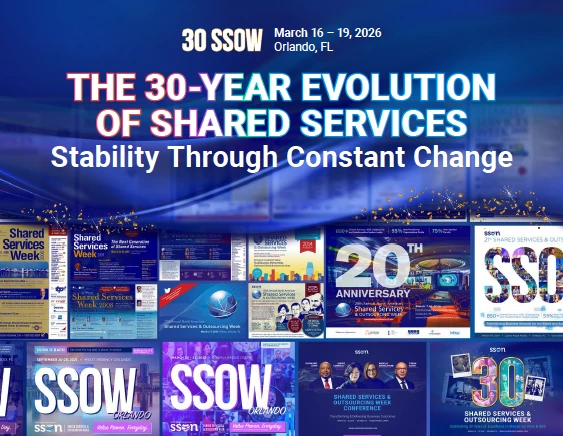Are You Forgetting the “S” in ESG?
Add bookmark
This March, SSON published “A Beginner’s Guide to ESG in Shared Services” as a means to share insights on environmental, social, governance (ESG) and explain why it is the latest value-adding opportunities for shared services and GBS.
The guide was not the only example of our commitment to raising awareness around the topic in the past year. Last November, Naomi Secor, Global Managing Director for SSON Research & Analytics, said, “We will see GBS playing a larger role in managing ESG compliance, creating better governance of assets and liabilities through policies and process controls, and aligning E2E customer/supplier/employee journeys and ESG risk management.”
Naomi’s prediction proved to be spot on. In March 2023, 52% of shared services organizations (SSOs) and GBS were playing a role in their business's ESG objectives. Fast forward six months, that number had jumped to nearly 70%, according to SSON Research & Analytics. This increase in participation for ESG projects shows how it is viewed as a means for GBS to demonstrate its value.
Despite the increased interest in ESG, most of the focus of shared services and GBS seems to be on the E (environment) and the G (governance) aspects. SSON Research & Analytics data shows that when GBS is pressured on ESG it is mostly stakeholders seeking higher production of sustainable products sustainable products (33%), and the pressure to disclose data on environmental sustainability activity (21%). Meaning, that the majority of stakeholder’s demands in ESG are related to environmental initiatives and not social ones. Similarly, 33% of organizations say a Chief Sustainability Officer is responsible for ESG, and an additional 24% say it’s their CFO, showing that the majority of ESG leaders are not specialists in social programs.
While it appears most stakeholders and ESG leaders are focused more on the other aspects of ESG, various ESG reporting regulations show corporate social responsibility is critical to the overall ESG mission. In Europe, the European Commission has approved ten topic standards for ESG reporting as part of the EU’s Corporate Sustainability Reporting Directive (CSRD). Four of the topics relate to social matters, including the businesses workforce, workers in the value chain, affected communities, and consumers and end-users.
The S in ESG is important for more reasons than just meeting reporting requirements. A focus on social responsibility plays a role in a company's relationship with its workforce, the societies in which it operates, and the political environment. The following are some risks businesses face by not focusing on social aspects in their ESG program:
- Reputational damage – Consumers and employees alike pay attention to social issues, and they notice how brands respond to them. If a company is perceived to be neglecting its social responsibilities, it can impact how customers, employees, and investors view the business.
- Employee productivity – On a similar note, if employees feel they are working for a business that is morally corrupt, they might not be as motivated. Poor labor practices, lack of diversity, or unsafe working conditions can lead to low morale, high turnover, and decreased productivity.
- Business opportunities- Companies may face challenges in entering new markets or forming partnerships if they are perceived as socially irresponsible. Many markets and partners now prioritize ethical and socially responsible business practices.
These risks show that shared services that fail to pay attention to the "S" in ESG not only risk reputational damage but also face operational, financial, and strategic challenges that can impact their long-term sustainability and success.
How shared services can contribute to social responsibility
Now that we understand why social factors are imperative to ESG and the overall success of shared services, here are a couple of areas that should be a top focus for ESG teams:
Diversity, equity, and inclusion (DE&I) - In order to foster DE&I, GBS must implement policies that ensure fair recruitment practices, equal pay opportunities, and establish diversity goals within the workforce.
Community engagement – A business's public image can be shaped by how it interacts with the community it is incorporated into. By establishing corporate social responsibility programs, employees are given the opportunity to support local causes and improve the business's image.
Employee well-being – In this post-Covid world, employee well-being initiatives have become a must-have. SSOs/GBS should provide a safe and inclusive work environment, promote work-life balance, and offer wellness programs for SSO/GBS employees and the entire enterprise.
Stakeholder engagement – SSO/GBS should be consistently engaging with internal and external stakeholders to understand their needs and concerns regarding social responsibility. This helps strengthen shared services relationships with clients/vendors as it can incorporate their views into shared services approach.
For more about the importance of social responsibility in ESG planning, be sure to register for SSOW Orlando starting March 25. During the conference a GBS Impact Award will be presented for DEI. If you’re interested in learning more about the award application process, click here.



























